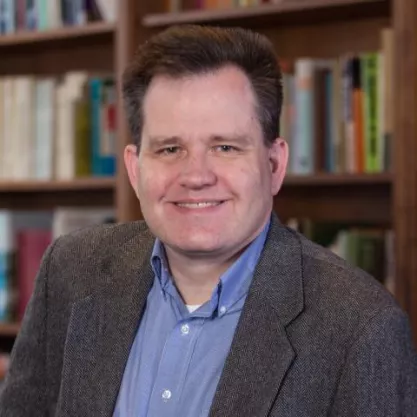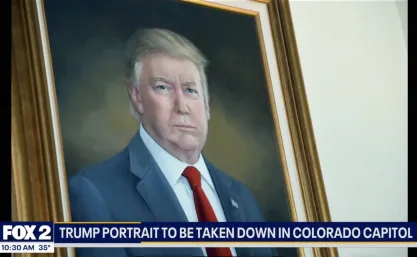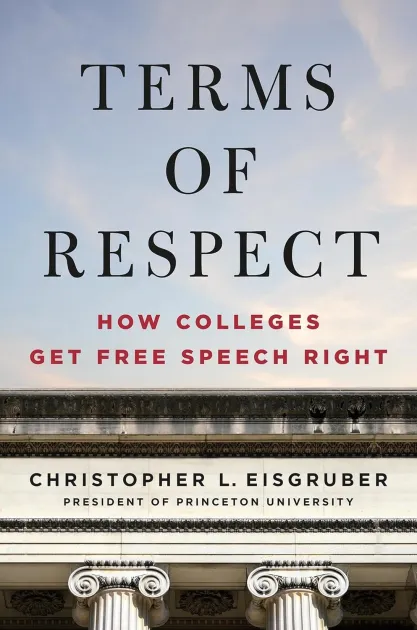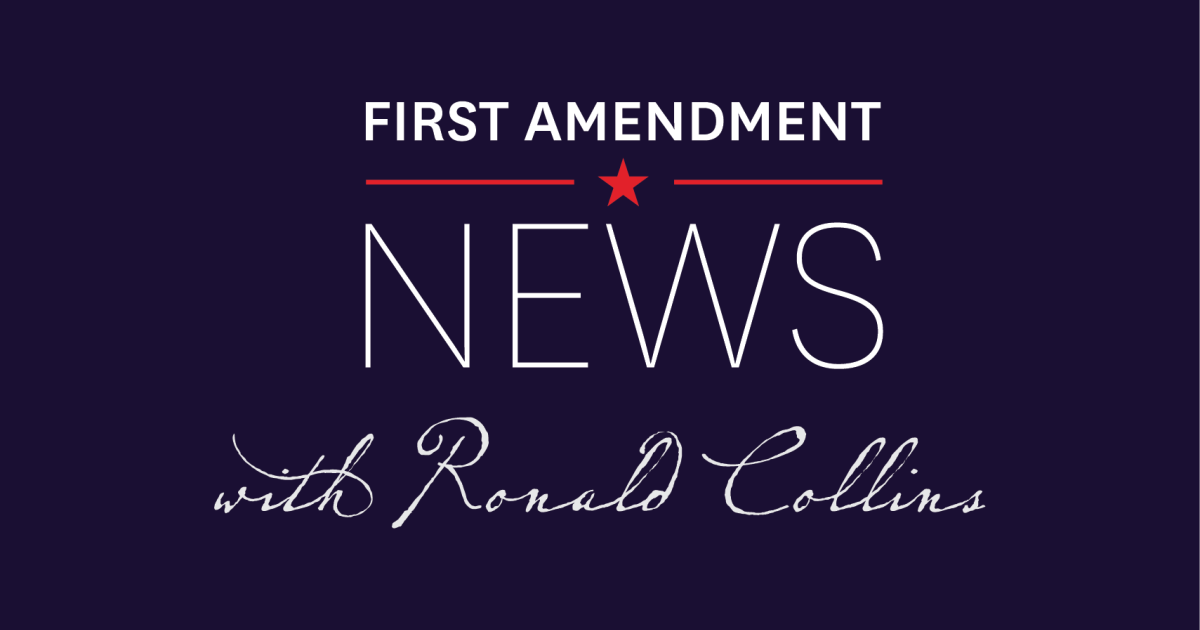“Global law firms have for years played an outsized role in undermining the judicial process and in the destruction of bedrock American principles.” — Executive Order (3-14-25)
“Law firms refuse to represent Trump opponents in the wake of his attacks” — The Washington Post (3-25-25)
The wolf is at the door.
Those who do not yet realize this may be forgiven for perhaps two reasons: They do not know the wolf is ravenous, and they do not know the door is ajar.
To get but a whiff of this, just read Brad Karp’s March 23 memo to his colleagues at the Paul Weiss firm, from which the title of this edition of FAN gets its title.
Also this, from MSNBC legal correspondent Lisa Rubin:
[The attacks on law firms] began with Trump issuing executive actions punishing three firms — Covington & Burling, which did not react; Perkins Coie, which fought back and won a partial temporary restraining order; and Paul Weiss, which ultimately capitulated to a deal announced last Thursday, the terms of which are still a matter of some debate. But the president has now directed Attorney General Pam Bondi, in a memo issued Friday night, to seek sanctions “against attorneys and law firms who engage in frivolous, unreasonable, and vexatious litigation against the United States.”
Now back to the Paul, Weiss controversy.
A little background at the outset to help set the retributive stage: According to Wikipedia, Karp “is a bundler for Democratic Party presidential candidates . . . having raised sums for the presidential campaigns of Kamala Harris, Cory Booker, Joe Biden, Amy Klobuchar, and others.”
In other words, if Trump was out for political retribution, Karp was a perfect target. And then consider this: One of Karp’s former partners was Mark Pomerantz, author of “People vs. Donald Trump: An Inside Account,” which details the attempt to prosecute former president Donald Trump, written by one of the lawyers who worked on the case and who resigned in protest when Manhattan’s district attorney refused to act.
And now on to the Executive Order from March 14, “Addressing Risks from Paul Weiss.” Excerpts below:
In 2022, Paul Weiss hired unethical attorney Mark Pomerantz, who had previously left Paul Weiss to join the Manhattan District Attorney’s office solely to manufacture a prosecution against me and who, according to his co-workers, unethically led witnesses in ways designed to implicate me. After being unable to convince even Manhattan District Attorney Alvin Bragg that a fraud case was feasible, Pomerantz engaged in a media campaign to gin up support for this unwarranted prosecution.
Additionally, Paul Weiss discriminates against its own employees on the basis of race and other categories prohibited by civil rights laws. Paul Weiss, along with nearly every other large, influential, or industry leading law firm, makes decisions around ‘targets’ based on race and sex.
My Administration is committed to ending such unlawful discrimination perpetrated in the name of “diversity, equity, and inclusion” policies and ensuring that Federal benefits support the laws and policies of the United States, including those laws and policies promoting our national security and respecting the democratic process.
Now, the Weiss law firm’s memo in response, from Brad Karp:
Only several days ago, our firm faced an existential crisis. The executive order could easily have destroyed our firm. It brought the full weight of the government down on our firm, our people, and our clients. In particular, it threatened our clients with the loss of their government contracts, and the loss of access to the government, if they continued to use the firm as their lawyers. And in an obvious effort to target all of you as well as the firm, it raised the specter that the government would not hire our employees.
We were hopeful that the legal industry would rally to our side, even though it had not done so in response to executive orders targeting other firms. We had tried to persuade other firms to come out in public support of Covington and Perkins Coie. And we waited for firms to support us in the wake of the President’s executive order targeting Paul, Weiss. Disappointingly, far from support, we learned that certain other firms were seeking to exploit our vulnerabilities by aggressively soliciting our clients and recruiting our attorneys.
We initially prepared to challenge the executive order in court, and a team of Paul, Weiss attorneys prepared a lawsuit in the finest traditions of the firm. But it became clear that, even if we were successful in initially enjoining the executive order in litigation, it would not solve the fundamental problem, which was that clients perceived our firm as being persona non grata with the Administration. We could prevent the executive order from taking effect, but we couldn’t erase it. Clients had told us that they were not going to be able to stay with us, even though they wanted to. It was very likely that our firm would not be able to survive a protracted dispute with the Administration.
Commentary:
President Donald Trump’s crackdown on lawyers is having a chilling effect on his opponents’ ability to defend themselves or challenge his actions in court, according to people who say they are struggling to find legal representation as a result of his challenges.
[Such executive orders and pressured settlements set] an ominous precedent for future presidents to exploit. . . . [H]ow can a lawyer who is considering representing a politically controversial client know that she will not be targeted the next time control of the White House changes hands? The safest course of action will be to avoid representing clients of any political salience, right or left, even if their cause is just.
Related
Constitutional scholars on the Trump Administration’s threats against Columbia University
We write as constitutional scholars — some liberal and some conservative — who seek to defend academic freedom and the First Amendment in the wake of the federal government’s recent treatment of Columbia University.
The First Amendment protects speech many of us find wrongheaded or deeply offensive, including anti-Israel advocacy and even antisemitic advocacy. The government may not threaten funding cuts as a tool to pressure recipients into suppressing such viewpoints. This is especially so for universities, which should be committed to respecting free speech.
At the same time, the First Amendment of course doesn’t protect antisemitic violence, true threats of violence, or certain kinds of speech that may properly be labeled ‘harassment.’ Title VI rightly requires universities to protect their students and other community members from such behavior. But the lines between legally unprotected harassment on the one hand and protected speech on the other are notoriously difficult to draw and are often fact-specific. In part because of that, any sanctions imposed on universities for Title VI violations must follow that statute’s well-established procedural rules, which help make clear what speech is sanctionable and what speech is constitutionally protected.
Yet the administration’s March 7 cancellation of $400 million in federal funding to Columbia University did not adhere to such procedural safeguards. Neither did its March 13 ultimatum stipulating that Columbia make numerous changes to its academic policies — including the demand that, within one week, it “provide a full plan” to place an entire “department under academic receivership for a minimum of five years” — as “a precondition for formal negotiations regarding Columbia University’s continued financial relationship with the United States government.”
Signatories
- Steven G. Calabresi
Clayton J. and Henry R. Barber Professor of Law, Northwestern Law School- Erwin Chemerinsky
Dean and Jesse H. Choper Distinguished Professor of Law, Berkeley Law School- David Cole
Hon. George J. Mitchell Professor in Law and Public Policy, Georgetown University Law Center- Michael C. Dorf
Robert S. Stevens Professor of Law, Cornell Law School- Richard Epstein
Laurence A. Tisch Professor of Law, NYU School of Law- Owen Fiss
Sterling Professor Emeritus of Law, Yale Law School- Aziz Huq
Frank and Bernice J. Greenberg Professor of Law, University of Chicago Law School- Pamela Karlan
Kenneth and Harle Montgomery Professor of Public Interest Law, Stanford Law School- Randall Kennedy
Michael R. Klein Professor of Law, Harvard Law School- Genevieve Lakier
Professor of Law, Herbert and Marjorie Fried Teaching Scholar, University of Chicago Law School- Michael McConnell
Richard and Frances Mallery Professor of Law, Stanford Law School- Michael Paulsen
Distinguished University Chair and Professor, St. Thomas Law School- Robert Post
Sterling Professor of Law, Yale Law School- David Rabban
Dahr Jamail, Randall Hage Jamail, and Robert Lee Jamail Regents Chair in Law, University of Texas Law School- Geoffrey R. Stone
Edward H. Levi Distinguished Service Professor of Law, University of Chicago Law School- Nadine Strossen
John Marshall Harlan II Professor of Law Emerita, New York Law School- Eugene Volokh
Thomas M. Siebel Senior Fellow, Hoover Institution, Stanford University- Keith Whittington
David Boies Professor of Law, Yale Law School
SCOTUS denies review in case urging that Sullivan be overruled
- Wynn v. Associated Press (issue: Whether this Court should overturn Sullivan’s actual-malice standard or, at a minimum, overrule Curtis Publishing Co.’s expansion of it to public figures)
On the Trump administration targeting campuses
The United States is home to the best collection of research universities in the world. Those universities have contributed tremendously to America’s prosperity, health, and security. They are magnets for outstanding talent from throughout the country and around the world. The Trump administration’s recent attack on Columbia University puts all of that at risk, presenting the greatest threat to American universities since the Red Scare of the 1950s. Every American should be concerned.
Until recently, it was a little-known program to help Black and Latino students pursue business degrees.
But in January, conservative strategist Christopher Rufo flagged the program known as The PhD Project in social media posts that caught the attention of Republican politicians. The program is now at the center of a Trump administration campaign to root out diversity, equity and inclusion programs in higher education.
The U.S. Education Department last week said it was investigating dozens of universities for alleged racial discrimination, citing ties to the nonprofit organization. That followed a warning a month earlier that schools could lose federal money over “race-based preferences” in admissions, scholarships or any aspect of student life.
The investigations left some school leaders startled and confused, wondering what prompted the inquiries. Many scrambled to distance themselves from The PhD Project, which has aimed to help diversify the business world and higher education faculty.
Zoom webinar on strategies to combat attacks on free speech in academia

Thursday, March 27, 2025, 1:00 – 2:00 PM ET
As efforts to silence dissent grow more aggressive, the immediate and long-term threats to our constitutional freedoms — especially in educational institutions — cannot be ignored.
This virtual panel will bring together top legal minds and policy experts to examine how these actions affect student activists, journalists, and marginalized communities. Together, we’ll explore the legal strategies needed to safeguard First Amendment rights and resist the erosion of civil liberties.
Featured Panelists: Maria Kari, Human Rights Attorney Rep. Delia Ramirez (IL-03) Jenna Leventoff, Senior Policy Counsel, ACLU Stephen F. Rohde, MPAC Special Advisor on Free Speech and the First Amendment Whether you’re a student, educator, advocate, or supporter of civil rights, this is a conversation you won’t want to miss.
➡️ Register today and join us in defending the values that define our democracy.
Whittington on diversity statements and college hiring

The University of California is the godfather of the use of so-called diversity statements in faculty hiring. I have a piece forthcoming at the Nebraska Law Review arguing that such diversity statement requirements for general faculty hiring at state universities violate the First Amendment and violate academic freedom principles everywhere. It seems quite likely that in practice such diversity statement requirements are also used to facilitate illegal racial discrimination in faculty hiring.
The University of California system’s board of regents has now put an end to the use of such diversity statements at those schools. This is a truly remarkable development. Not unreasonably, this decision is being put in the context of the Trump administration’s extraordinary attack on Columbia University, a move that I think is both lawless and itself a threat to academic freedom. But there’s no question that it got the attention of university leaders across the country, and if it encourages some of them to rededicate themselves to their core institutional mission and its central values then at least some good will come of it. So silver linings and all that.
Trump rails against portrait at the Colorado Capitol

Institute for Free Speech files brief in campaign disclosure-fee case
The case is Sullivan v. Texas Ethics Commission. The issue in the case is whether — and if so, under what circumstances — the First Amendment permits the government to require ordinary citizens to register and pay a fee to communicate with their government representatives.
- Amicus brief here. Counsel of record: Alan Gura. The Institute’s brief argues that the 1954 precedent of United States v. Harriss no longer reflects modern First Amendment jurisprudence and fails to protect the right to speak anonymously about matters of public policy.
Forthcoming book by Princeton’s president on campus free speech

The president of Princeton, a constitutional scholar, reveals how colleges are getting free speech on campuses right and how they can do better to nurture civil discourse and foster mutual respect
Conversations about higher education teem with accusations that American colleges and universities are betraying free speech, indoctrinating students with left-wing dogma, and censoring civil discussions. But these complaints are badly misguided.
In Terms of Respect, constitutional scholar and Princeton University president Christopher L. Eisgruber argues that colleges and universities are largely getting free speech right. Today’s students engage in vigorous discussions on sensitive topics and embrace both the opportunity to learn and the right to protest. Like past generations, they value free speech, but, like all of us, they sometimes misunderstand what it requires. Ultimately, the polarization and turmoil visible on many campuses reflect an American civic crisis that affects universities along with the rest of society. But colleges, Eisgruber argues, can help to promote civil discussion in this raucous, angry world — and they can show us how to embrace free speech without sacrificing ideals of equality, diversity, and respect.
Urgent and original, Terms of Respect is an ardent defense of our universities, and a hopeful vision for navigating the challenges that free speech provokes for us all.
Forthcoming scholarly article on AI and the First Amendment
This paper challenges the assumption that courts should grant outputs from large generative AI models, such as GPT-4 and Gemini, First Amendment protections. We argue that because these models lack intentionality, their outputs do not constitute speech as understood in the context of established legal precedent, so there can be no speech to protect. Furthermore, if the model outputs are not speech, users cannot claim a First Amendment right to receive the outputs.
We also argue that extending First Amendment rights to AI models would not serve the fundamental purposes of free speech, such as promoting a marketplace of ideas, facilitating self-governance, or fostering self-expression. In fact, granting First Amendment protections to AI models would be detrimental to society because it would hinder the government’s ability to regulate these powerful technologies effectively, potentially leading to the unchecked spread of misinformation and other harms.
More in the news
- “VICTORY: Federal court blocks Texas A&M’s unconstitutional drag ban,” FIRE (March 24)
- Eugene Volokh, “Nevada Court Decision in Climate Blogger’s Doxing Lawsuit Against Daily Kos,” The Volokh Conspiracy (March 24)
- Taylor Hertzlich, “FCC’s Brendan Carr warns DEI policies at Paramount, Verizon could threaten mergers,” The New York Post (March 21)
- Julie Carr Smyth, “Appeals court hears dispute over Ohio school district’s pronoun policy,” Free Speech Center (March 21)
- Jeff Zeeman, “American Jews must not give an inch on free speech — even when words hurt us,” FIRE (March 21)
- “Free Speech Arguments – Can Public Schools Compel Preferred Pronoun Usage? (Parents Defending Education v. Olentangy Local School District, et al.),” Institute for Free Speech (March 19)
- Sasha Volokh, “Amicus Brief in Georgia Adult-Entertainment Case,” The Volokh Conspiracy (March 19)
2024-2025 SCOTUS term: Free expression and related cases
Cases decided
- Villarreal v. Alaniz (Petition granted. Judgment vacated and case remanded for further consideration in light of Gonzalez v. Trevino, 602 U. S. ___ (2024) (per curiam))
- Murphy v. Schmitt (“The petition for a writ of certiorari is granted. The judgment is vacated, and the case is remanded to the United States Court of Appeals for the Eighth Circuit for further consideration in light of Gonzalez v. Trevino, 602 U. S. ___ (2024) (per curiam).”)
- TikTok Inc. and ByteDance Ltd v. Garland (The challenged provisions of the Protecting Americans from Foreign Adversary Controlled Applications Act do not violate petitioners’ First Amendment rights.)
Review granted
Pending petitions
Petitions denied
Free speech related
- Thompson v. United States (decided: 3-21-25/ 9-0 w special concurrences by Alito and Jackson) (interpretation of 18 U. S. C. §1014 re “false statements”)
Last scheduled FAN
FAN 462: “Executive Watch: Trump’s weaponization of civil lawsuits”
This article is part of First Amendment News, an editorially independent publication edited by Ronald K. L. Collins and hosted by FIRE as part of our mission to educate the public about First Amendment issues. The opinions expressed are those of the article’s author(s) and may not reflect the opinions of FIRE or Mr. Collins.

